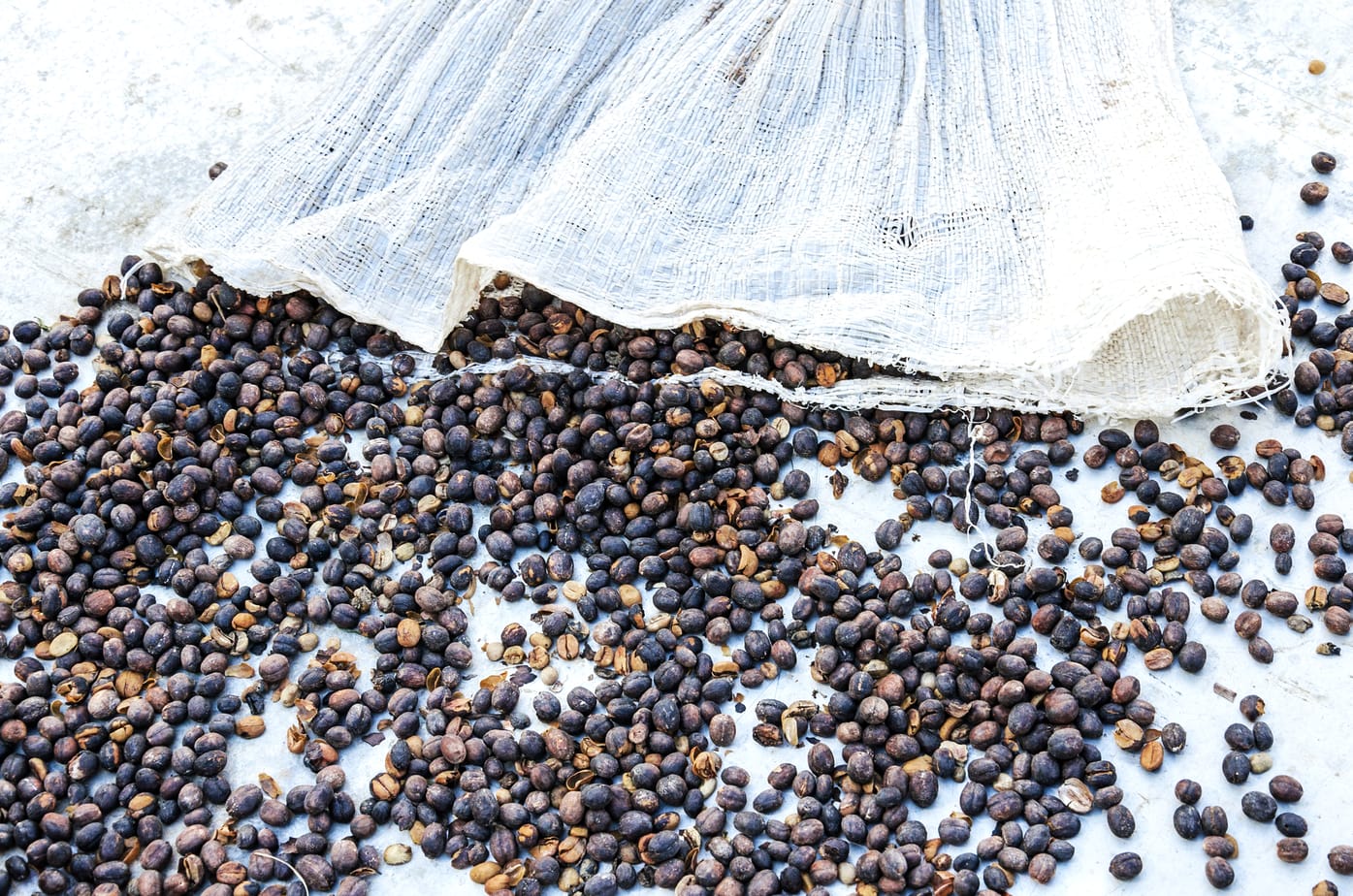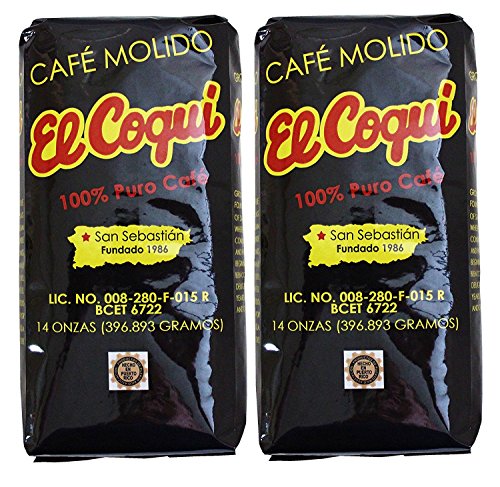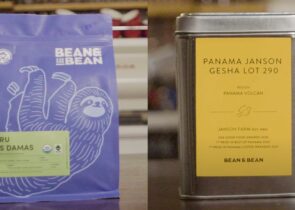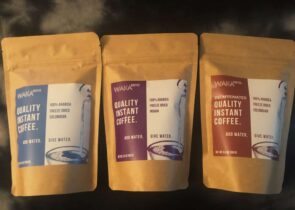Rich, volcanic soil. Climate. Altitude.
Puerto Rico may not be as famous as its Columbian cousin in the coffee world, but its interior provides a fertile and ideal spot to grow coffee plants.
Due to production costs and internal political unrest, coffee is no longer a top-export out of Puerto Rico, which may be why many folks have never had an authentic cup.
At a Glance: Best Puerto Rican Coffee
Quick Summary: Best Puerto Rican Coffee
 | Our Top Choice
Alto Grande Premium Coffee
| Check on Amazon → |
 | Cafe Yaucono Original Ground Coffee | Check on Amazon → |
 | Cafe Lareno Ground Coffee | Check on Amazon → |
 | Cafe El Coqui Puerto Rican Coffee | Check on Amazon → |
 | Cafe Oro Puerto Rican Ground Coffee | Check on Amazon → |
A Look at Coffee Production in Puerto Rico
There was a time when Puerto Rico produced arguably the best coffee on the planet. In fact, by the late nineteenth century, Puerto Rico was the sixth largest exporter of coffee in the entire world.
Because of major storms, cloud cover, scarce labor, and other issues beyond the control of the region, coffee production in Puerto Rico declined for decades.
That’s not to say that the quality of Puerto Rico’s coffee has slipped to an unrecognizable degree or that it’s no longer easy to secure an authentic bag for yourself. That territory is still America’s top coffee producer, ahead of Hawaii.
In 2017, as production had finally begun moving in the opposite direction and started to increase, Hurricane Maria ravaged the area and once again set Puerto Rico back in several ways, including coffee harvesting. It wasn’t the first time hurricanes were a devastating blow to the production of coffee in Puerto Rico.
Though the coffee crop in Puerto Rico is no longer what it once was, a fierce movement is determined to rebuild the industry and help restore its old glory.
Best Puerto Rican Coffee
Despite smaller export numbers, access to a real cup of 100% authentic Puerto Rican coffee is well within your reach and widely-available. Let’s take a look at a few of the best brands they have to offer.
Alto Grande Premium Coffee
Widely-considered to be a “super-premium” coffee and the coffee of Popes and Kings, Alto Grande is one of the top coffees in the world and one of Puerto Rico’s most recognizable since the early nineteenth century.
Alto Grande classifies as a “hard bean,” and the Arabic trees that produce it yield just one pound of coffee per year. Though production is limited, its quality is top-notch.
Profiling experts tout Alto Grande coffee as a rare and exotic coffee that has “full-body chocolate undertones” and a sweet, sharp aroma.
Alto Grande coffee is low in acidity and qualifies as a medium roast. The fine grind lacks the bitterness that bugs many connoisseurs, and it is almost impossible to make a bad cup. We’d recommend trying a French press for a delicious brew with a mellow taste.
Although the quality may not be quite what it was in its heyday, it’s hard to find much of anything not to like about Alto Grande’s coffee.
Cafe Yaucono Original Ground Coffee
Much like Alto Grande, Cafe Yaucono is one of the most recognizable names there are when it comes to Puerto Rican coffee. Tomas Prado created the brand in 1914. By 1963, Cafe Yaucono became widely-regarded as Puerto Rico’s #1 coffee.
Cafe Yaucono is a bold, full-bodied roast. The flavor is silky-smooth and balanced while its finely ground beans provide a strong brew. Its tasting profile classifies as a medium.
This low-acidity coffee is well-known for its freshness and lacks the bitterness that is often the downfall of many other beans.
Many of those who enjoy Cafe Yaucono coffee swear by brewing it in a Moka pot for maximum flavor and body. Drip makers should still yield a great-tasting brew.
Cafe Yaucono coffee is also available in decaf, instant, and espresso.
Cafe Lareno Ground Coffee
Cafe Lareno has only been in business since 1989, which may pale in comparison to its predecessors, but don’t be fooled. Fans of Cafe Lareno coffee swear by it and claim it to be the best coffee they’ve ever had. Of course, the taste is objective, but the popularity and praise are impossible to ignore.
These beans are sourced from the mountains of Lares, which are just north of Yauco, an uber-popular growing region. With elevations of approximately 1200 meters in some places, the mountains of Lares are higher than most Puerto Rican plantations.
Mild in acidity, Cafe Lareno coffee offers chocolatey flavor notes with a hint of caramel. The coffee is velvety smooth and is a nice, easy drink with nary a hint of bitterness. One need not be a coffee snob or connoisseur to appreciate this bean.
Cafe Lareno’s coffee has drawn comparisons to Hawaiian Kona, which is quite a compliment!
If you’re seeking strong and bold, but not overpowering, you’ll probably want to try Cafe Lareno’s coffee.
Cafe El Coqui Puerto Rican Coffee
For more than 20 years, the Ruperto Rodriguez family have been bringing this exquisite roast to their customers. If a more nutty flavor profile is up your alley, this is probably the coffee you’ll want to give a try.
Because these beans are harvested in San Sebastian, they offer up a bit of a different taste. So, for those who love their Puerto Rican coffee and want to vary up their taste profile, Cafe El Coqui is likely a great choice.
Cafe El Coqui coffee has mild acidity. In addition to nutty flavor notes, there are some hints of citrus. El Coqui has a rich, chocolatey aroma and a strong fragrance. The taste can be classified as rich and robust.
Although Cafe El Coqui’s coffee is slightly more acidic than other coffees we’ve reviewed, it’s still got a natural sweetness and brews a smooth cup without any hint of bitterness. This medium-roast coffee is a fantastic alternative to more traditional coffees from the region that feature chocolatey, caramel notes.
Cafe Oro Puerto Rican Ground Coffee
Finally, we have coffee from Cafe Oro, which translates to “gold coffee.”
This coffee falls back to the more traditional chocolate and caramel flavor notes commonly found in Puerto Rican coffees.
For those who prefer to enjoy their coffee black, Cafe Oro coffee has a natural sweetness and mellow aftertaste that makes for a tasty cup without needing to add milk or sugar.
The acidity level of Cafe Oro coffee classifies as mild, and the robust and chocolatey aroma the coffee gives off is both bold and intoxicating.
Full and smooth-bodied, this is a coffee that even the most casual drinker can appreciate.
Cafe Oro de Puerto maintains all of its farms and grows their beans in the mountains of Lares.

Growing Coffee Plants in Puerto Rico
The keys to growing a great coffee bean revolve mostly around factors such as climate, altitude, and soil. Because Puerto Rico checks each of these boxes, it is one of the more ideal places to grow and produce coffee.
Perhaps one of the most important factors in the lush mountains of the region is the bauxite-infused soil where coffee plants thrive.
For coffee plants to grow optimally, they need plenty of sunshine and also need dry periods that last long enough to dry the beans after they’re harvested. The coffee-producing areas of Puerto Rico also require humidity and enough annual rainfall to ensure the crops receive the water they need.
Production Areas
The coffee-producing areas of Puerto Rico are spread throughout. The general elevation ranges where production takes place are between 2,400 and 2,780 feet, and the terrain extends from Orocovis to Rincon.
There are three Puerto Rican municipalities in the northwestern, central part of the country that are responsible for the majority of production occurs:
- Lares
- San Sebastian
- Las Marias
Other growing regions include Yauco, Adjuntas, Jayuya, and Ponce.
The main variety of coffee grown in these regions is arabica.
Taste Profiles
Puerto Rican coffee is known for its chocolate and caramel notes. The coffee is generally sweet, low in acidity, not bitter, and smooth. Depending on the region, the flavor profiles may shift towards a more nutty and citrusy blend.
Rebuilding Efforts
Earlier in the article, we touched on Hurricane Maria and how devastating it was to the coffee production that had finally begun to bounce back after decades of declining production.
The heartbreaking storm destroyed 85% of coffee farm harvests and forced many farmers to begin from scratch.
How has Puerto Rico been rebuilding since?
In October of 2018, a non-profit advocacy organization called the Hispanic Federation introduced a five-year coffee initiative designed to revitalize and replenish the coffee sector.
As a part of the initiative, Starbucks also donated two million coffee seeds.
Some forecast that it would take 9-10 million trees in a three-year span to replace what was wiped out. Farmers themselves say it will take nearly twice that.
The Puerto Rican government distributed approximately 500,000 trees throughout the island in an effort to jumpstart farmers, with millions more on the way.
Because one coffee tree takes three years to grow, the process is long and difficult for farmers. But, the island relies heavily on agriculture, and farmers in the region are determined to recover what was lost in 2017 and hope to rebuild and grow more prosperous than ever before.
Wrapping Up
Puerto Rico’s coffee history is marred by unfortunate and unpredictable weather events and issues that have prevented it from thriving the way it always deserved.
Just because Puerto Rico isn’t quite the coffee empire it once was, that doesn’t mean a delicious, authentic cup isn’t still accessible to anyone who is looking for a major upgrade to their morning routine.
Each coffee reviewed here is available for purchase. If you’re a coffee-lover and have never had a real cup of Puerto Rican coffee, you owe it to yourself to try it out.












